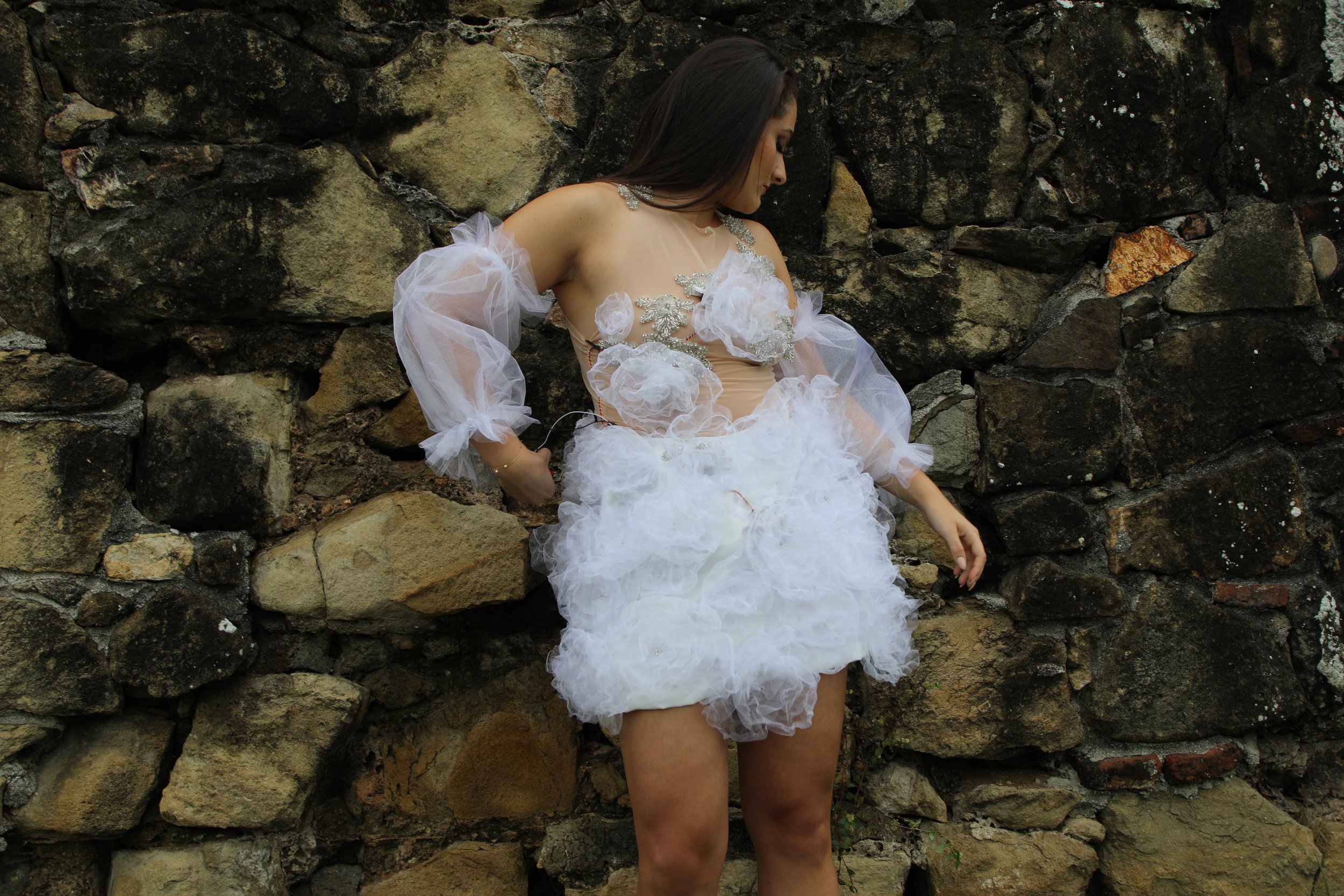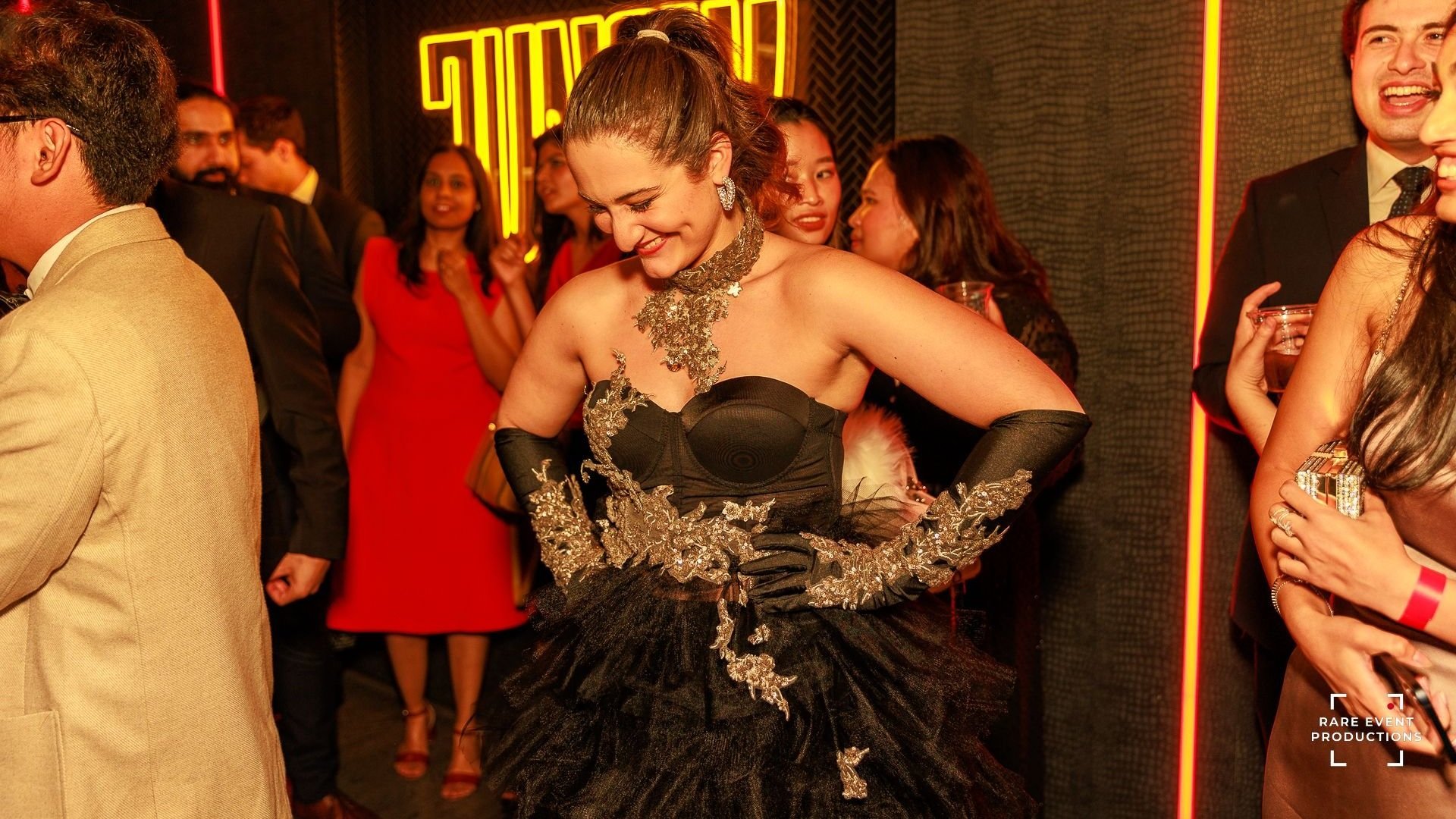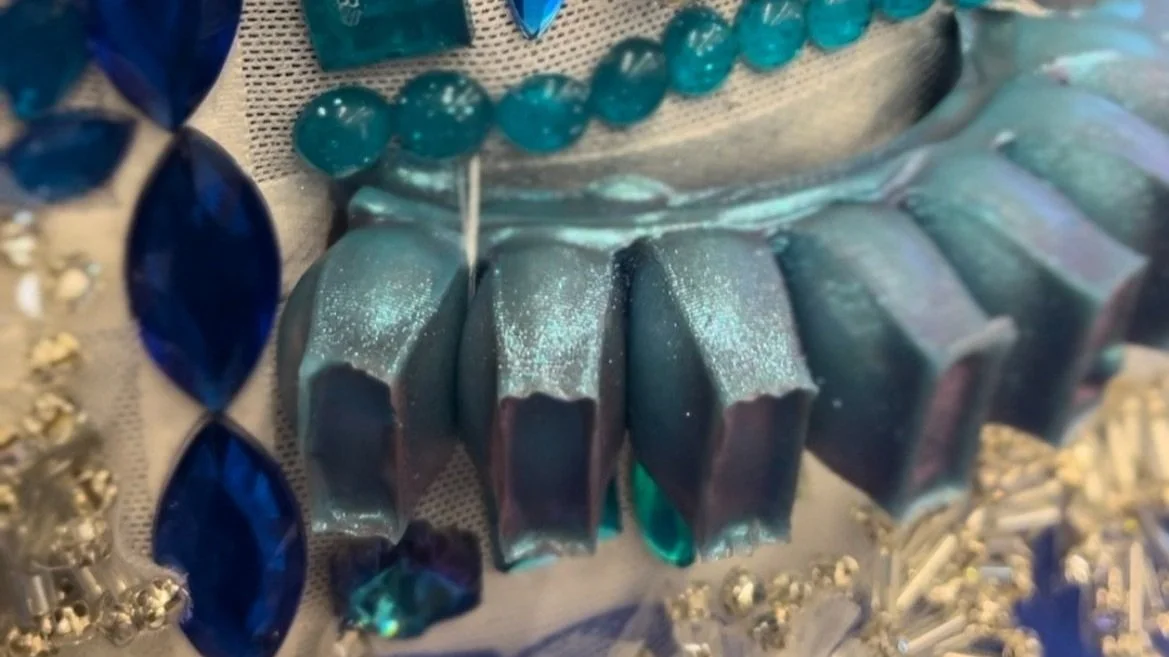Maia Hirsch
Wearable Robotics & Human-Robot Interaction
Short Bio:
I am a Venezuelan robotics engineer and wearable technology designer, currently pursuing my PhD in Robotics at Cornell University. My research focuses on the fit and grounding of wearable technologies, integrating sensors and actuators into fabrics for applications in space suit technology and human-robot interaction.
My journey bridges fashion and engineering, including internships at Cornell’s HAPPI Lab and Cornell Tech, where I developed haptic wearables and interactive garments. My work has been showcased at Panama Fashion Week, and I was invited by the First Lady of Panama to promote STEM education for young women.
With a social media following of over 40,000, I inspire others to pursue their passions through engineering, sharing how creativity and technology can merge to shape the future of wearable robotics.
I am a first year PhD. student in Robotics at Cornell University conducting research at the Human Augmentation Physical Perceptual Interactions (HAPPI) Lab. I am interested in exploring how emerging technologies and engineering design can push the boundaries of fashion and self-expression, transforming garments into functional, interactive art.
Photo by Margaret Valera
Research Interests:
I design wearable technologies that merge robotics, haptics, and interactive design to create garments that adapt to the body, respond to their environment, and assist in extreme and everyday conditions.
Current work explores:
Fit and grounding of sensors and actuators on fabrics
Soft actuators for haptics in space
Programmable materials and soft robotics for expressive, functional garments
My goal is to create lightweight, modular, and scalable systems that enhance both functionality and human experience, while maintaining artistic elegance. Previous work includes designing soft actuators for haptic vests for social interaction and robotic dresses that respond to environmental and emotional cues.
Ultimately, I aim to pioneer wearable technology as a medium for connection, expression, and innovation—reshaping how humans interact with their clothing and their world.
Outreach:
I am passionate about inspiring others—especially women—to pursue careers in STEM. I share my journey with a 40K+ audience on Instagram (@maiahirschlab), showcasing the intersection of art and robotics and encouraging others to follow their passions.
I was featured in a national campaign by Panama’s First Lady during the World Robotics Olympics 2023, empowering young women to pursue STEM careers. Through public speaking, social media, and interactive exhibits, I aim to highlight how engineering can transform lives and inspire the next generation of innovators.
Research and Publications
Publication Venue: ACM/IEEE International Conference on Human-Robot Interaction
Advisors: Angelique Taylor, Cornell Tech, Cornell University
While teleoperated robots have been successfully used in high-stakes domains such as firefighting and space exploration, autonomous robots that aid highstakes teamwork remain underexplored. To address this gap, we conducted a rapid prototyping process to develop a series of seemingly autonomous robot designed to assist clinical teams in the Emergency Room. We transformed a standard crash cart—which stores medical equipment and emergency supplies into a medical robotic crash cart (MCCR). The MCCR was evaluated through field deployments to assess its impact on team workload and usability, identified taxonomies of failure, and refined the MCCR in collaboration with healthcare professionals. Our work advances the understanding of robot design for high-stakes, time-sensitive settings, providing insights into useful MCCR capabilities and considerations for effective human-robot collaboration. By publicly disseminating our MCCR tutorial, we hope to encourage HRI researchers to explore the design of robots for high-stakes teamwork.
This project focused on developing a wearable haptic vest that simulates a virtual hug using soft inflatable pouches. I worked on improving the vest’s adaptability by designing a high-torque motor mechanism to adjust for various body sizes, optimizing sensor placement to ensure reliable feedback, and creating a new pouch geometry to prevent deformation. This work combined mechanical design, soft robotics, and user-centered innovation, showcasing the potential for functional and aesthetically refined wearable technology.
Advisors: Cara Nunez, Cornell University
Advisors: Thijs Roumen, Cornell Tech, Cornell University
This project focused on developing invisible fiducial markers to facilitate remote hardware debugging, conducted in the Matter of Tech Lab at Cornell Tech under the guidance of Prof. Thijs Roumen. The goal was to create markers that are invisible to the human eye but detectable by computer vision systems, enabling precise tracking and visualization of hardware components during remote debugging sessions. I worked on optimizing the markers' design for various materials and lighting conditions to ensure reliable detection without compromising the hardware's appearance. This project bridged computer vision, AR, and hardware design, enhancing the efficiency of remote debugging workflows.
Advisors: Yair Herbst and Alon Wolf, Technion - Israel Institute of Technology
The Hugo project focused on developing a haptic feedback device, with my role centered on creating a protocol to measure the device's resolution. This involved designing precise testing methods to evaluate the system’s sensitivity and accuracy in delivering tactile feedback. By analyzing the device's performance under various conditions, I contributed to refining its functionality and ensuring its capability to deliver nuanced haptic cues. This project combined haptics, engineering design, and experimental validation, advancing the understanding and performance of tactile feedback technology.
Personal Projects

An interactive wearable that brings art and technology together. Designed with organza petals and motors, the dress blooms when someone grabs the wearer’s hand. This project combines mechanical engineering, wearable technology, and aesthetic design to create a captivating and dynamic piece of fashion innovation.

The Flower Awakens / 2024
Designed with servos and computer vision, the dress reacts to hand gestures as the flowers follow the hands rotation. This project is at the intersection of fashion and engineering, using technology to bring garments to life and create a statement piece for a milestone celebration.

This project addresses the challenge of creating intricate, three-dimensional dress designs without relying on traditional metal support structures. By leveraging additive manufacturing and 3D printing technologies, support structures were directly integrated into fabric, eliminating the need for rigid and uncomfortable metal components.

The Chrysalis dress integrates silicone-based soft robotics to create a dynamic, adaptive garment. Using lightweight, flexible structures, the dress incorporates soft robotic components that expand and contract, showcasing the potential of responsive fashion to combine comfort, functionality, and cutting-edge technology.
Press & Awards
Awards
Engineering Learning Initiative Award, Cornell University / 2024
For contributions to advancing undergraduate research in haptics and robotics.
For pursuing projects that are nonlinear, unconventional, unexpected, adventurous, intense, surprising, questionable, and primed for engagement with new technologies.
Backslash Award, Cornell Tech / 2024
For pursuing projects that are nonlinear, unconventional, unexpected, adventurous, intense, surprising, questionable, and primed for engagement with new technologies.
Backslash Award, Cornell Tech / 2023
1st place BME-Hack, Technion - Israel Institute of Technology / 2023
For proposing an innovative and human-centered concept for an inhaler.
Cornell Chronicle / March 2025
41st annual fashion show embraces ‘... any person ... any study’
Press
Science and Tech - The Cornell Sun / March 2025
When Fashion Meets Engineering: The Story of Maia Hirsch
Maia Hirsch Bridges The Gap Between Engineering and Fashion
SOL Collective: Where Moda Meets Tech Panel / March 2025
Exploring the intersection of fashion and technology, featuring Latinas redefining the industry through AI and robotics.
Cornell Fashion Collective (CFC) Interview
Interviewing Designers
The Digital Runway Podcast with Janey Park
Wearable Robotics & The Future of Fashion Tech with Maia Hirsch
Interview with The Garden / March 2025
“Featuring extraordinary talent”
EDGE New York Fashion Week / February 2025
this season's most innovative startups and brands redefining how we shop, style, and connect with fashion
From Robots to Runways: Maia Hirsch’s Fusion of Engineering and Fashion
Cornell Maker Club Project Demos / 2024
Providing a space where motivated and creative minds can give shape to their ideas.
Interview with Panama’s First Lady (World Robotics Olympics) / 2023
National campaign to inspire young women to pursue careers in STEM.
Presentations and Talks
Engineering Learning Initiatives Research Presentation / April 2025
India Institute of Technology Gandhinagar (IIT Gandhinagar)
Robots and Runways: Introducing Robotics into Fashion
For contributions to advancing undergraduate research in haptics and robotics.
Exhibitions
Open Studio at Cornell Tech
Peace Offer
2025
Cornell Fashion Collective Spring Show
Peace Offer
New York City, USA
Ithaca, New York, USA
Peace Offer
Backslash Studio at Cornell Tech
EDGE New York Fashion Week
Peace Offer
New York City, USA
New York City, USA
Open Studio at Cornell Tech
No Poking Metals
2023
New York City, USA
Open Studio at Cornell Tech
Chrysalis
New York City, USA




